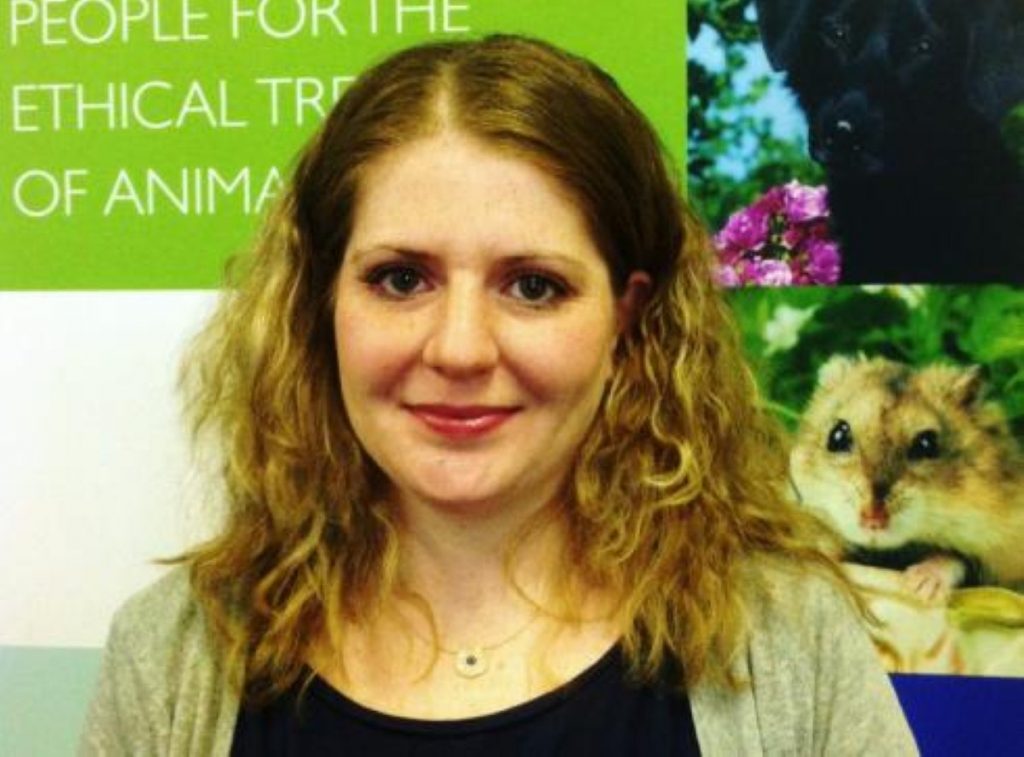Comment: Eating animals is like slavery – it has to end now
By Mimi Bekhechi
November 1st marks the start of World Vegan Month, a time when people around the globe will reflect on the many reasons not to consume foods which have been produced through the suffering of animals.
From nation to nation, enlightened individuals will follow in the footsteps of people such as Bill Clinton, Russell Brand and Twitter founder Biz Stone and banish meat, eggs and dairy products from their diets. Will you be one of them?
If so, you'll be part of a movement that's grown steadily over time. The meat-free catering sector is one of the fastest-growing industries in the UK. Research firm Mintel reported last year that sales of meat-free and 'free-from' foods have experienced robust growth since 2007, with the market seeing a 39% increase in the past five years and sales set to top £1 billion during 2013.


A completely vegan world may still be a way off, but an ever-growing number of people recognise the benefits of a world that is free from the pain and suffering of animals. For starters, there would be no factory farms or slaughterhouses. Newborn piglets wouldn't be taken from their mothers – who spend most of their lives stuffed inside small metal crates – and packed into pens to be raised and killed for pork. Chickens would no longer have parts of their sensitive beaks seared off without being given pain relievers or be scalded to death in defeathering tanks. Cows would never be dismembered while they're conscious, and their babies wouldn't be crated and killed, all for a fleeting taste of milk or meat.
Animal waste would stop spilling into our waterways, and no one would have to live downwind from a sickening, pollution-spewing animal factory. Methane, nitrous oxide and other potent greenhouse gases would be dramatically reduced. Not surprisingly, the United Nations has said that a global shift towards a vegan diet is vital to save the world from hunger, fuel poverty and the worst effects of climate change.
Without raising animals for food, there'd also be more food to go around. It takes up to 16lbs of grain to produce just 1lb of meat. And an astounding 97% of the world's soya crop goes to farmed animals rather than to hungry people. Little wonder, then, that the international development select committee reported in June that people in Britain should eat less meat in order to help ease the food crisis in the developing world.
Humans would be healthier without fatty, cholesterol-laden meaty meals, which can contribute to the UK's biggest killers, such as obesity, heart disease, diabetes and cancer. And if we all adopted healthier vegan diets, there would also be fewer food-borne illnesses as well as a reduced threat from growing antibiotic resistance. When animals are crammed together in warehouses, often mired in their own waste, they are frequently given massive doses of antibiotics in order to keep them alive, making animal farms breeding grounds for superbugs. England's chief medical officer, Professor Dame Sally Davies, has called this a "ticking time bomb".
Going vegan might not make the world a perfect place, but it would help make it a kinder, greener, healthier one. And while raising fewer animals and treating them less cruelly are steps in the right direction, ultimately the exploitation of animals for human ends must be stopped – just as slavery, child labour and other social ills were.
It wouldn't have been acceptable for slaveholders simply to have owned fewer slaves or to have treated slaves better – abolishing slavery was the only truly ethical thing to do. One day, the raising of animals for food will be relegated to the history books alongside slavery and other injustices. Until then, consider going vegan, even if only for a month.
Mimi Bekhechi is associate director at People for the Ethical Treatment of Animals (PETA)
The opinions in politics.co.uk's Comment and Analysis section are those of the author and are no reflection of the views of the website or its owners.









